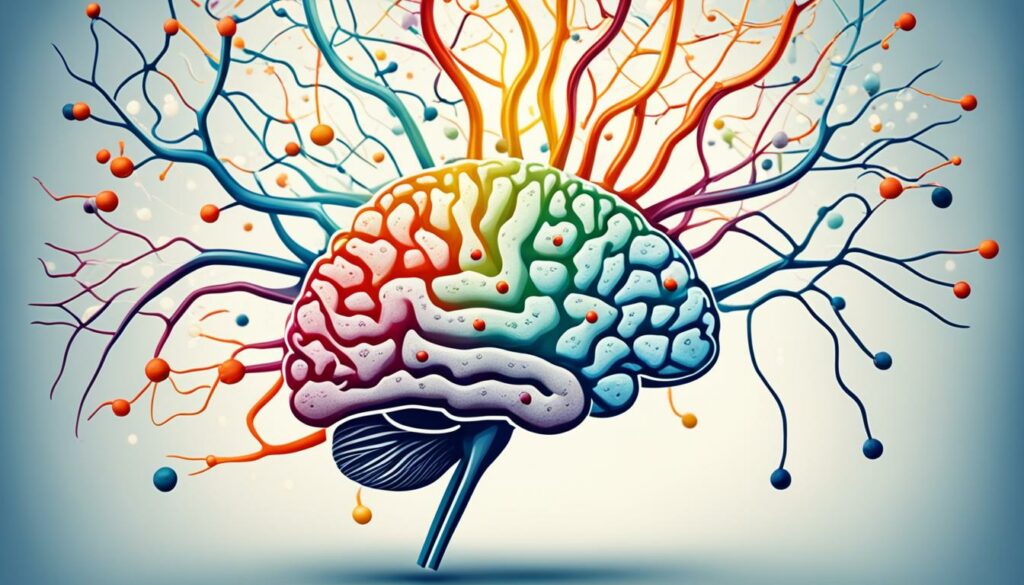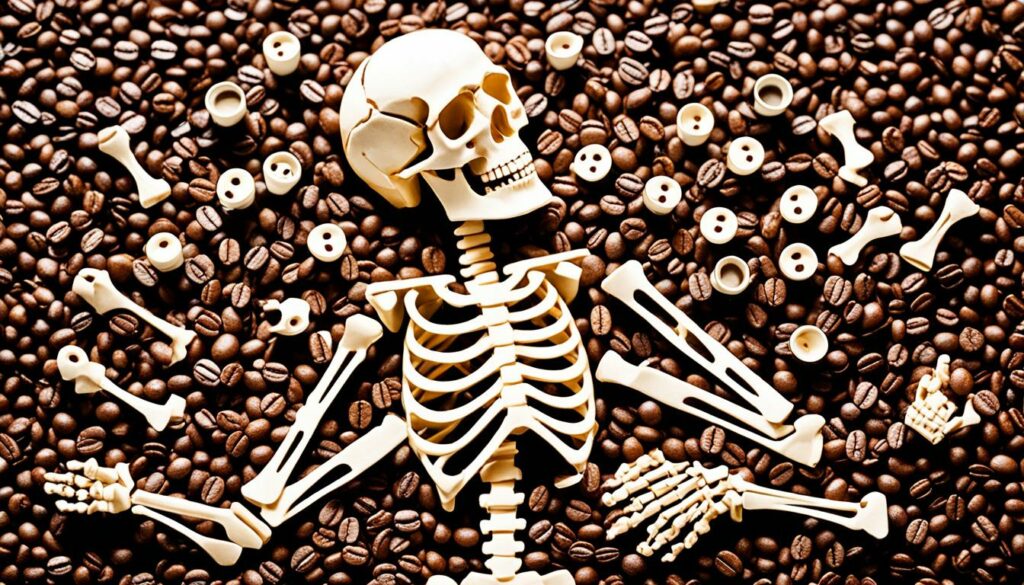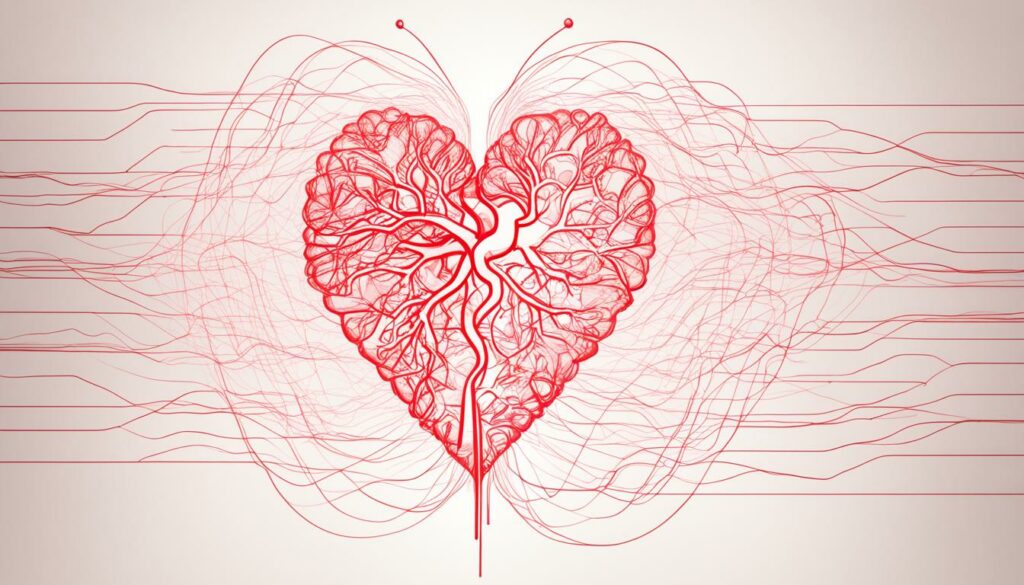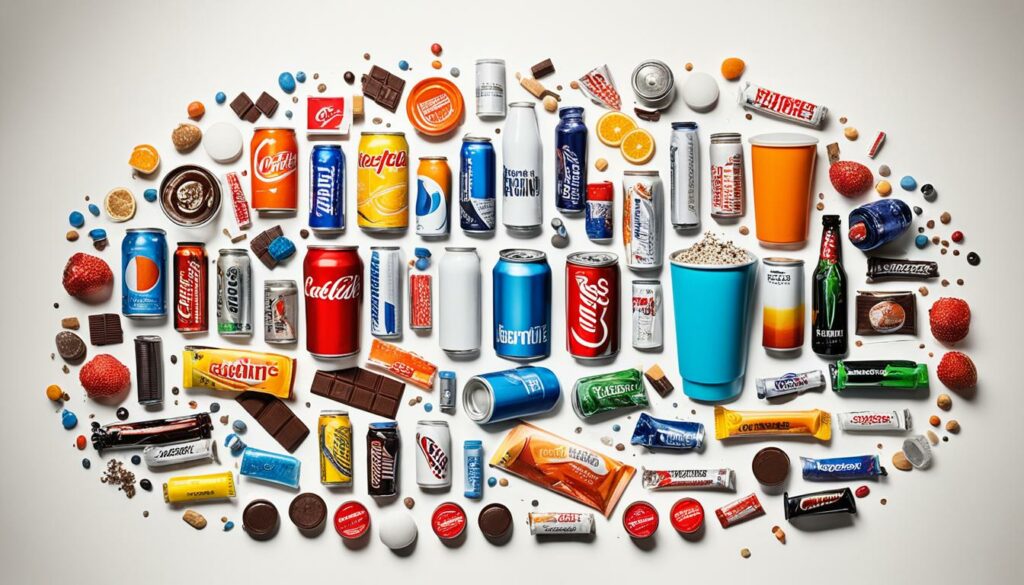Is Coffee Bad for Teens? Health Impacts Explained
Coffee has become a popular beverage among teenagers, but concerns have arisen about its potential impact on their health and development. In this article, we will explore the effects of coffee on teenage health and shed light on the risks and benefits associated with its consumption. It is important for both parents and teens to understand how coffee might influence their well-being as they navigate adolescence.
Key Takeaways:
- Excessive coffee consumption can have both short and long-term effects on teenage health.
- Caffeine, the primary component of coffee, can affect the central nervous system and lead to various negative effects.
- Caffeine consumption during adolescence can interfere with brain development and potentially impact the brain’s reward system.
- Coffee can disrupt sleep patterns in teens, leading to sleep deprivation and its associated consequences.
- Consuming excessive caffeine, including through coffee and energy drinks, may negatively affect bone health in teenagers.
The Effects of Caffeine on Teenagers

Caffeine, the primary component of coffee, is a stimulant that affects the central nervous system. While small doses of caffeine can enhance mood, alertness, and cognitive function, excessive consumption can lead to a range of negative effects in both teenagers and adults.
- Insomnia: Excessive caffeine intake can disrupt sleep patterns, making it difficult for teenagers to get adequate rest.
- Restlessness: In large amounts, caffeine can cause feelings of restlessness and jitteriness in teenagers, negatively impacting their ability to relax and focus.
- Increased Urination: Caffeine is a diuretic, which means it can lead to increased urination. This can potentially disrupt a teenager’s daily routine and lead to dehydration if fluid intake does not compensate for the increased output.
- Upset Stomach: Some teenagers may experience stomach discomfort, including indigestion, acid reflux, or even nausea, due to the consumption of coffee.
- Muscle Twitching: High levels of caffeine can cause muscle tremors or twitches, which can be irritating and disruptive to daily activities.
- Irregular Heart Rhythms: Excessive caffeine intake can lead to changes in heart rate and rhythm, potentially causing palpitations or irregular heartbeats.
It is important for teenagers and their parents to be aware of the potential health consequences of consuming coffee and other caffeinated beverages.
A visualization highlighting the risks of coffee consumption for teenagers.
Brain Development and Caffeine

During adolescence, the brain undergoes significant development, laying the foundation for cognitive abilities and emotional regulation. However, the consumption of caffeine during this critical period can potentially interfere with the formation and efficiency of neural connections.
Research suggests that caffeine has an impact on the brain’s reward system, which plays a crucial role in shaping an individual’s preferences and behaviors, including their choices related to food and drinks later in life.
It is important to consider the long-term effects of caffeine on the developing brain of teenagers.
Furthermore, studies have shown that excessive caffeine intake can disrupt normal sleep patterns in adolescents, resulting in sleep deprivation. Adequate sleep is essential for optimal brain development and overall well-being in teenagers.
To better understand the impact of caffeine on the growing brain, research is ongoing, but current evidence highlights the need for caution when it comes to caffeine consumption among teenagers.
The Interplay Between Caffeine and Neural Connections
One of the key concerns regarding adolescent caffeine consumption is its potential impact on neural connections within the brain. During this critical period, the brain undergoes a process called synaptic pruning, where unnecessary connections are eliminated, and important connections are strengthened.
The presence of caffeine can interfere with this process, potentially affecting the efficiency and organization of neural networks. This can have long-lasting consequences on cognitive functions, mood regulation, and overall brain health.
Implications for Teenage Development
The developing brain is particularly vulnerable to external influences, especially during adolescence. Excessive caffeine intake can disrupt the delicate balance required for optimal brain development.
Children and teenagers who consume large amounts of caffeine, such as through coffee, energy drinks, or soda, may experience cognitive impairment, increased restlessness, and difficulties in focusing and learning.
| Impact of Caffeine on Growing Brain | Potential Consequences |
|---|---|
| Disruption of neural connections | Impaired cognitive function |
| Alteration of the brain’s reward system | Influencing food and drink preferences |
| Interference with synaptic pruning | Negative impact on cognitive abilities |
To ensure optimal brain development and overall well-being, it is advisable for teenagers to limit their caffeine intake and prioritize a variety of other beverages that support their growth, such as water, milk, and natural fruit juices.
“The consumption of caffeine during adolescence can potentially interfere with neural connections and have long-term consequences on cognitive abilities and behavior.”
Next, we will explore the impact of caffeine on sleep patterns and the importance of adequate sleep for teenagers.
Sleep and Caffeine

Caffeine can have a significant impact on the sleep patterns of teenagers, especially when consumed in large amounts. Even small amounts of caffeine can disrupt sleep, leading to sleep deprivation, which can have negative consequences on a teen’s education, mental health, and physical well-being.
Adequate sleep is crucial for teenagers as it plays a vital role in their growth, cognitive function, and overall well-being. However, the consumption of caffeine, particularly close to bedtime, can interfere with the ability to fall asleep and affect the quality of sleep.
When teens consume caffeine, it stimulates the central nervous system and increases alertness, making it difficult for them to wind down and relax when it’s time to sleep. The effects of caffeine can last for several hours, further delaying the onset of sleep and reducing the overall duration of sleep.
A lack of sleep can have far-reaching consequences for teenagers. It can lead to daytime sleepiness, decreased concentration and memory, impaired decision-making, and even mood disturbances. Sleep deprivation in teens has also been linked to increased risk-taking behavior, depression, and obesity.
To prioritize healthy sleep habits in teenagers, it is essential to monitor their caffeine intake. Encouraging teens to limit or avoid caffeinated beverages, especially in the afternoon and evening, can help promote better sleep. Instead, they should opt for decaffeinated options or non-caffeinated beverages like herbal tea or water.
Creating a relaxing bedtime routine, avoiding electronic devices before bed, and ensuring a comfortable sleep environment can also contribute to better sleep quality for teens.
Caffeine and Bone Health

Consuming excessive amounts of caffeine, including through coffee, has been linked to bone loss over time. Teens who replace milk with sodas or energy drinks may be at a higher risk of osteoporosis and fractures due to the negative impact of caffeine on bone density. It is important to encourage teens to prioritize calcium-rich beverages and minimize their consumption of caffeinated drinks.
Caffeine consumption has long been associated with potential risks to bone health, especially in adolescents whose bones are still developing. Studies have shown that excessive caffeine intake can hinder calcium absorption and increase calcium excretion through urine, leading to decreased bone mineral density and increased risk of fractures.
Soda and energy drinks, commonly consumed by teens, pose an additional risk to bone health due to their high caffeine content. These popular beverages often replace healthier alternatives like milk, which is a significant source of calcium and other necessary nutrients for bone development.
Table: Caffeine Content in Popular Beverages
| Beverage | Caffeine Content (mg) |
|---|---|
| Coffee (8 oz) | 95-165 |
| Soda (12 oz) | 18-48 |
| Energy Drink (8 oz) | 68-207 |
As shown in the table above, coffee generally contains higher levels of caffeine compared to soda and energy drinks. However, it’s important to note that the serving sizes can vary among different beverages and brands, so it’s essential to check the label for accurate caffeine content.
To mitigate the risks to bone health, teens should be encouraged to choose calcium-rich beverages such as low-fat milk, fortified plant-based milk alternatives, and calcium-fortified orange juice. These options provide essential nutrients for proper bone development and can help offset the negative effects of caffeine on bone density.
Caffeine and Underlying Health Conditions

Caffeine, a stimulant found in coffee and other caffeinated products, can have adverse effects on teenagers with pre-existing health conditions. It is essential for both healthcare professionals and parents to be aware of these potential interactions to ensure the well-being of teens.
Caffeine can exacerbate existing health problems, especially heart conditions. In individuals with heart problems, the stimulant effect of caffeine can increase heart rate, blood pressure, and the risk of arrhythmias. It is crucial for teens with heart issues to exercise caution when consuming coffee or other caffeinated beverages.
Furthermore, caffeine can interact with certain medications or supplements that teens may be taking. It can alter the effectiveness or side effects of medications, potentially putting the teenager’s health at risk. It is important for healthcare professionals to review a teen’s medication regimen and educate them about potential interactions with caffeine.
“Teens with existing heart conditions should exercise caution when consuming caffeine. It is always advisable to consult with a healthcare professional before making any dietary changes.”
Risks of Coffee for Teens with Existing Health Issues
Teens with underlying health issues, such as cardiovascular problems, should be cautious about consuming coffee or other caffeinated products. The stimulant effect of caffeine can exacerbate their condition and potentially lead to adverse outcomes. It is important to prioritize their overall health and well-being by minimizing their caffeine intake.
Interaction of Caffeine with Medications
Caffeine can interact with certain medications, potentially altering their effectiveness or causing unwanted side effects. It is crucial for parents and healthcare professionals to have open conversations with teenagers about their caffeine intake and ensure they are aware of any potential interactions with their medications. A comprehensive understanding of these interactions can help prevent any adverse outcomes.
Caffeine Withdrawal in Teens
Regular caffeine consumers, including children and teens, may experience withdrawal symptoms when attempting to cut back or quit caffeine. These symptoms can range from headaches and fatigue to irritability and impaired cognitive performance. Understanding and managing caffeine withdrawal symptoms is crucial to supporting teens who may be trying to reduce their caffeine intake.
Caffeine withdrawal can have a significant impact on teens’ performance and well-being. The sudden absence of caffeine can disrupt their daily routine and make it challenging to focus on schoolwork or other activities. Headaches and fatigue can hinder their energy levels and productivity, while irritability can affect their relationships with peers and family members.
The impact of caffeine withdrawal on teens’ performance and well-being extends beyond the physical symptoms. Teens may experience difficulty concentrating, poor memory recall, and decreased cognitive function without their usual caffeine intake. These effects can negatively impact their academic performance and overall mental well-being.
It is important for both teens and their parents to be aware of the potential withdrawal symptoms and take steps to manage them effectively. Gradually reducing caffeine intake, staying hydrated, getting enough sleep, and engaging in stress-reducing activities can help alleviate withdrawal symptoms and support teens in their efforts to cut back on caffeine.
Understanding Caffeine Withdrawal Symptoms
- Headaches
- Fatigue
- Irritability
- Difficulty concentrating
- Decreased cognitive function
- Cravings for caffeine
These symptoms can vary in intensity and duration, with some teens experiencing mild effects while others may face more significant challenges. It is important for parents and healthcare professionals to provide support and guidance during this transition period.
Teens experiencing withdrawal symptoms should be encouraged to practice self-care and engage in activities that promote relaxation and well-being. It is essential to create a supportive environment that understands and recognizes the difficulties associated with caffeine withdrawal.
By acknowledging and addressing caffeine withdrawal symptoms in teens, we can help them navigate this challenging process and promote their overall health and well-being.
Common Sources of Caffeine for Teens

Teens have a variety of options when it comes to caffeinated drinks. While coffee is often associated with caffeine consumption, there are other popular beverages that can contribute to a teen’s caffeine intake. It’s important to be aware of the caffeine content in these drinks and the potential health risks associated with their consumption.
Popular Caffeinated Drinks Among Teens
Teens are drawn to a range of caffeinated drinks that offer flavor and a boost of energy. Some of the popular choices include:
- Energy drinks: These highly caffeinated beverages are often marketed towards young adults and athletes, but they can pose health risks due to their high caffeine content.
- Soda: Many soft drinks contain caffeine, including popular brands like Coca-Cola and Pepsi. Regular consumption of soda can contribute to a teen’s overall caffeine intake.
- Iced tea: Some varieties of iced tea, especially those sold in cans and bottles, can contain significant amounts of caffeine.
- Specialty coffee drinks: Popular beverages like frappuccinos and lattes from well-known coffee chains can pack a caffeine punch. These indulgent drinks may contain more caffeine than a regular cup of coffee.
It’s worth noting that the caffeine content can vary among different brands and types of these drinks. Reading labels and understanding the caffeine content is crucial in order to make informed choices.
Hidden Sources of Caffeine for Teenagers
Caffeine is not only found in beverages but also in various food products. It’s important to be aware of these hidden sources of caffeine as they can contribute to a teenager’s daily intake. Some unexpected sources include:
- Chocolate: Dark chocolate and certain types of chocolate-flavored snacks contain caffeine, though in smaller amounts compared to coffee or energy drinks.
- Protein bars: While marketed as a healthy snack, protein bars can also contain caffeine, especially those designed to provide an energy boost.
- Flavored yogurt: Some flavored yogurt varieties may have added caffeine to enhance taste or provide an energy boost.
When it comes to hidden sources of caffeine, reading labels and being aware of the ingredients is key to understanding how much caffeine a teen may be consuming.
It’s important for parents and teens to have open discussions about caffeine consumption, educating themselves on the caffeine content in different drinks and snacks. Encouraging moderation and a balanced approach to nutrition is crucial for maintaining teen health and well-being.
Energy Drinks and Teen Health

Energy drinks have gained popularity among teenagers, but their consumption comes with significant risks to teen health. These beverages often contain high levels of caffeine and other substances that can have detrimental effects on the body. It is crucial for parents and healthcare professionals to educate teens about the potential dangers of excessive energy drink consumption.
Regular consumption of energy drinks has been linked to increased emergency room visits and hospitalizations among teenagers. Cases of caffeine toxicity, where individuals experience symptoms such as rapid heart rate, high blood pressure, and even seizures, have been reported. In extreme cases, fatalities have occurred due to the consumption of these highly caffeinated beverages.
The marketing of energy drinks to young athletes is particularly concerning. Teens may be influenced by the advertising that suggests these drinks can enhance athletic performance and provide an energy boost. However, the reality is that the excessive caffeine content in these drinks can lead to dehydration, increased heart rate, and disrupted sleep patterns.
“Regular consumption of energy drinks has been linked to increased emergency room visits and hospitalizations among teenagers.”
Furthermore, energy drinks often contain additional ingredients such as taurine, guarana, and herbal stimulants that can further exacerbate the negative health effects. While the exact long-term health implications of excessive energy drink consumption are not fully understood, it is essential to be cautious and limit the intake of these beverages among teens.
To illustrate the caffeine content in energy drinks, the following table provides a comparison of popular brands:
| Brand | Caffeine Content (per 8 oz serving) |
|---|---|
| Red Bull | 80 mg |
| Monster | 160 mg |
| Rockstar | 160 mg |
As shown in the table, energy drinks can contain varying amounts of caffeine, with some brands containing significantly higher levels than others. It is important for teens to be aware of the caffeine content and consume these beverages in moderation, if at all.
To further emphasize the health implications of excessive energy drink consumption, here are the potential risks:
- Increased risk of caffeine toxicity
- Disrupted sleep patterns and insomnia
- Dehydration and electrolyte imbalances
- Increased heart rate and blood pressure
- Impaired cognitive function and focus
- Dependency and withdrawal symptoms
Parents, educators, and healthcare professionals play a crucial role in educating teens about the risks associated with energy drinks. Encouraging alternative beverages such as water, sports drinks, or even herbal tea can help teens make healthier choices. By promoting a balanced and well-rounded approach to hydration, teens can prioritize their health and well-being.
Lack of Research on Coffee’s Long-Term Effects
Despite the growing concerns about the impact of coffee on children and adolescents, there is a significant lack of comprehensive research examining its long-term effects. While studies have explored the potential health benefits of coffee consumption in adults, there is limited information regarding the implications for younger individuals. As a result, many questions remain unanswered.
Long-term studies that specifically focus on coffee’s impact on various aspects of children’s health are essential to provide a clearer understanding of the potential risks and benefits. These studies would help shed light on the effects of coffee on growth, development, cognitive function, and overall well-being as children transition into adulthood.
“Without proper long-term research, it is difficult to make definitive conclusions about the impact of coffee consumption during childhood and adolescence. We need adequate studies to guide recommendations and ensure the health and safety of our younger population.” – Dr. Samantha Roberts, Pediatric Researcher.
While current research suggests that moderate coffee consumption in adults may have certain health benefits, such as reducing the risk of certain diseases, it is uncertain whether these findings can be extrapolated to children and teenagers. The developing bodies and physiological processes of young individuals may respond differently to coffee’s components, necessitating specific studies for this age group.
The lack of long-term research poses challenges for parents, healthcare professionals, and policymakers who seek evidence-based guidelines on coffee consumption in children and adolescents. Without comprehensive data, it becomes harder to make informed decisions and provide accurate recommendations regarding coffee intake for this population.
Current Knowledge and Gaps
While the specific effects of coffee on children and adolescents remain largely unknown, some studies have hinted at potential concerns. For instance, caffeine, the main active compound in coffee, can impact sleep patterns and potentially hinder healthy brain development in growing individuals.
However, these findings are limited and require further exploration. The complexities of studying coffee’s long-term effects necessitate rigorous research designs, large sample sizes, and long-duration studies to accurately capture the impact of coffee consumption during childhood and adolescence.
Recommendations for Future Research
Given the lack of conclusive evidence and the potential implications for children’s health, it is crucial to prioritize future research efforts on coffee consumption in the younger population. This could involve long-term observational studies, controlled intervention trials, and developmental research to establish a comprehensive understanding of the benefits and risks.
Specific areas of research could include:
- Assessment of the effects of coffee on growth and physical development in children and adolescents.
- Investigation of coffee’s impact on cognitive function, including memory, attention, and learning abilities.
- Exploration of the association between coffee consumption and the risk of chronic diseases, such as cardiovascular conditions and metabolic disorders.
- Examination of coffee’s influence on mental health outcomes, including anxiety, depression, and mood disorders.
Collecting detailed data on coffee consumption patterns, including beverage types, preparation methods, and frequency of intake, would further enhance the understanding of how these factors contribute to health outcomes in children and teenagers.
Until more research becomes available, it is advisable for parents, healthcare professionals, and educators to approach coffee consumption in children and adolescents with caution. Encouraging a balanced and varied diet, adequate sleep, and promoting other healthy lifestyle choices remain paramount for their well-being.
To illustrate the need for further research, the table below outlines the current state of knowledge regarding coffee’s impact on children and adolescents:
| Research Findings | Knowledge Gap |
|---|---|
| Caffeine may affect sleep patterns and brain development | Limited understanding of the long-term consequences of caffeine exposure in childhood |
| No definitive evidence regarding coffee’s impact on growth and physical development | Insufficient data to establish guidelines for coffee consumption in this age group |
| Potential association between coffee and cognitive function | Inadequate research to determine the cognitive implications of long-term coffee consumption |
| Limited study on coffee’s influence on mental health outcomes | Unclear understanding of how coffee may affect mental well-being in children and teenagers |
While we await further research, it is essential to approach coffee consumption in children and adolescents with moderation and emphasize a well-rounded approach to nutrition and overall health.
Limitations and Recommendations for Teen Coffee Consumption
Due to the potential risks associated with caffeine, it is generally recommended to limit coffee and caffeine intake in children and teens. The American Academy of Pediatrics discourages caffeine consumption for kids, prioritizing their overall health and well-being. In Canada, there are basic guidelines for daily caffeine limits based on age, ensuring a safe and responsible approach to consumption.
It is important for parents to play an active role in their teens’ caffeine consumption habits. Encouraging them to prioritize water and low-fat milk over sugary and caffeinated beverages can have a significant impact on their long-term health. Below are some practical recommendations for parents:
- Limit coffee and caffeine consumption to ensure the well-being of teens.
- Encourage drinking water and low-fat milk as healthier alternatives to caffeinated beverages.
- Monitor the intake of energy drinks and other highly caffeinated products.
- Educate teens about the potential risks of excessive caffeine consumption.
By following these guidelines and fostering a mindful approach to caffeine, parents can help their teens establish healthy habits that promote their overall well-being now and in the future.
The American Academy of Pediatrics Guidelines for Children and Caffeine Consumption
“The American Academy of Pediatrics advises against the consumption of caffeine in children and adolescents. It is essential to prioritize nutritious beverages like water and low-fat milk for optimal growth and development.” – American Academy of Pediatrics
Canadian Guidelines for Caffeine Intake
| Age Group | Daily Caffeine Limit |
|---|---|
| 4-6 years | 45 mg |
| 7-9 years | 62.5 mg |
| 10-12 years | 85 mg |
| 13+ years | 85-100 mg |
Note: The above table provides general guidelines for daily caffeine limits in children and adolescents in Canada. These limits may vary depending on individual circumstances and health considerations. Parents should consult healthcare professionals for personalized advice.
Conclusion
Considering the potential risks and uncertainties surrounding long-term coffee consumption in teenagers, caution is advised. While coffee may offer temporary benefits, its impact on teen health is a concern. Caffeine, found in coffee, can have detrimental effects on brain development, sleep patterns, and bone health in adolescents. Furthermore, it can exacerbate existing health conditions in teens.
It is vital for parents, healthcare professionals, and teenagers themselves to be mindful of their coffee and caffeine intake. Prioritizing a balanced approach to overall health and well-being is key. Encouraging teens to limit their consumption of caffeinated beverages like coffee, energy drinks, and soda is recommended.
Healthy alternatives such as water and low-fat milk should be emphasized, while also providing education on the potential risks associated with excessive caffeine intake. While more research is needed on the long-term effects of coffee on teen health, it is crucial to make informed decisions and foster healthy habits in the meantime.
FAQ
Is coffee bad for teens?
Coffee consumption among teenagers can have negative health effects. While small amounts of caffeine can be beneficial, excessive intake can lead to various issues.
What are the effects of caffeine on teenagers?
Caffeine can impact mood, alertness, and cognitive function in teenagers. However, excessive consumption can cause restlessness, insomnia, upset stomach, and irregular heart rhythms.
How does caffeine affect brain development in teenagers?
Caffeine consumption during adolescence can interfere with the formation and efficiency of neural connections. It may also impact the brain’s reward system and influence future food and drink preferences.
Does caffeine affect sleep in teenagers?
Yes, caffeine can disrupt sleep patterns, leading to sleep deprivation in teenagers. This can negatively impact their education, mental health, and physical well-being.
How does caffeine impact bone health in teenagers?
Excessive caffeine intake, including through coffee, has been linked to bone loss over time. It is important for teenagers to prioritize calcium-rich beverages and minimize their consumption of caffeinated drinks.
Does caffeine interact with underlying health conditions?
Caffeine can exacerbate existing health conditions, such as heart problems, and may interact with certain medications or supplements. Teens with pre-existing health issues should exercise caution when consuming coffee or other caffeinated products.
What are the withdrawal symptoms of cutting back on caffeine for teens?
Regular caffeine consumers, including teens, may experience withdrawal symptoms such as headaches, fatigue, irritability, and impaired cognitive performance when reducing caffeine intake.
Where can teenagers find caffeine besides coffee?
Teenagers can consume caffeine through beverages like energy drinks, soda, iced tea, and specialty coffee drinks. Caffeine is also present in less obvious sources like chocolate, protein bars, and flavored yogurt.
Are energy drinks safe for teenagers?
Energy drinks, which often contain high levels of caffeine and other substances, pose particular risks to teen health. Regular consumption has been associated with increased emergency room visits and hospitalizations.
Is there enough research on the long-term effects of coffee consumption in teenagers?
Currently, there is a lack of comprehensive research on the long-term effects of coffee consumption in children and adolescents. More studies are needed to determine the impact of coffee on various aspects of health as teenagers transition into adulthood.
What are the recommendations for teen coffee consumption?
It is generally recommended to limit coffee and caffeine intake in children and teens. The American Academy of Pediatrics discourages caffeine consumption for kids. Canada provides basic guidelines for daily caffeine limits based on age.







